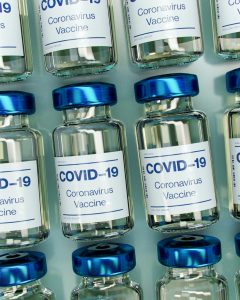Hospital Dynamics
The Erasmus Medical Center is the largest academic hospital in the Netherlands and had a pivotal role throughout the COVID crisis. In order to improve internal decision-making, the Erasmus MC asked IRP Delft to develop a model that helps them to understand hospital dynamics by simulating different COVID outbreak scenarios and the effects on capacity. This generalized model can be used to simulate the effects of different policies and optimize for the number of patients that can enter the hospital without breaching capacity limits.
Approach
The research consisted of three different phases. First, we got a crash course on hospital operations in order to have the right background knowledge. In the second phase the model was developed and in the final phase the results were validated. During the first phase we started off with a few lectures and got the opportunity to ask all our questions during multiple interviews. The goal was to understand the hospital operations, determine which capacities were the bottleneck throughout the first COVID-19 outbreak in March 2020 and identify the areas where the model was able to add most value by providing insights. Secondly, with improved understanding of the hospital we were able to fit the operations into a model. This phase contained two main tasks. The first task was gathering and structuring data in Excel by closely collaborating with the hospital personnel, for example through workshops. Secondly, a lot of programming was done in Python to model all facets of hospital operations. The simulation part of the model was developed first and using these functions and results we were able to set up an efficient optimization tool. Finally, the results were checked and presented to the analysts of the Integral Capacity Management department. The output data should resemble a realistic hospital and the analyst needed to be able to recognize the steady state hospital operations. Secondly, checks were done to see if the model behaves as it should, by going back to first principles.
Results
The final product delivered to the Erasmus MC was a Python package that can be worked with using Excel input and output files. Next to these files, a manual with specific use cases and explanation of terms used throughout the code was handed over. The final model was well able to resemble hospital dynamics and immediately was able to provide insights into hospital dynamics. During the March 2020 COVID-19 crisis the regular care capacity at the Erasmus MC dropped down to nearly 50%. Re-simulating this crisis using the developed model showed that, when optimizing for patient intake throughout the crisis, the hospital would have been able to continue approximately 60% of regular care. In addition, different scenarios can be simulated and tested, to see the effects of possible decisions the Erasmus MC can make to increase their capacity to continue regular care in the future. Finally, the model was written in a fully generalized object oriented manner, which enables the Erasmus MC to extend the data input and for example differentiate for all different patient types within the hospital when that data comes available.


